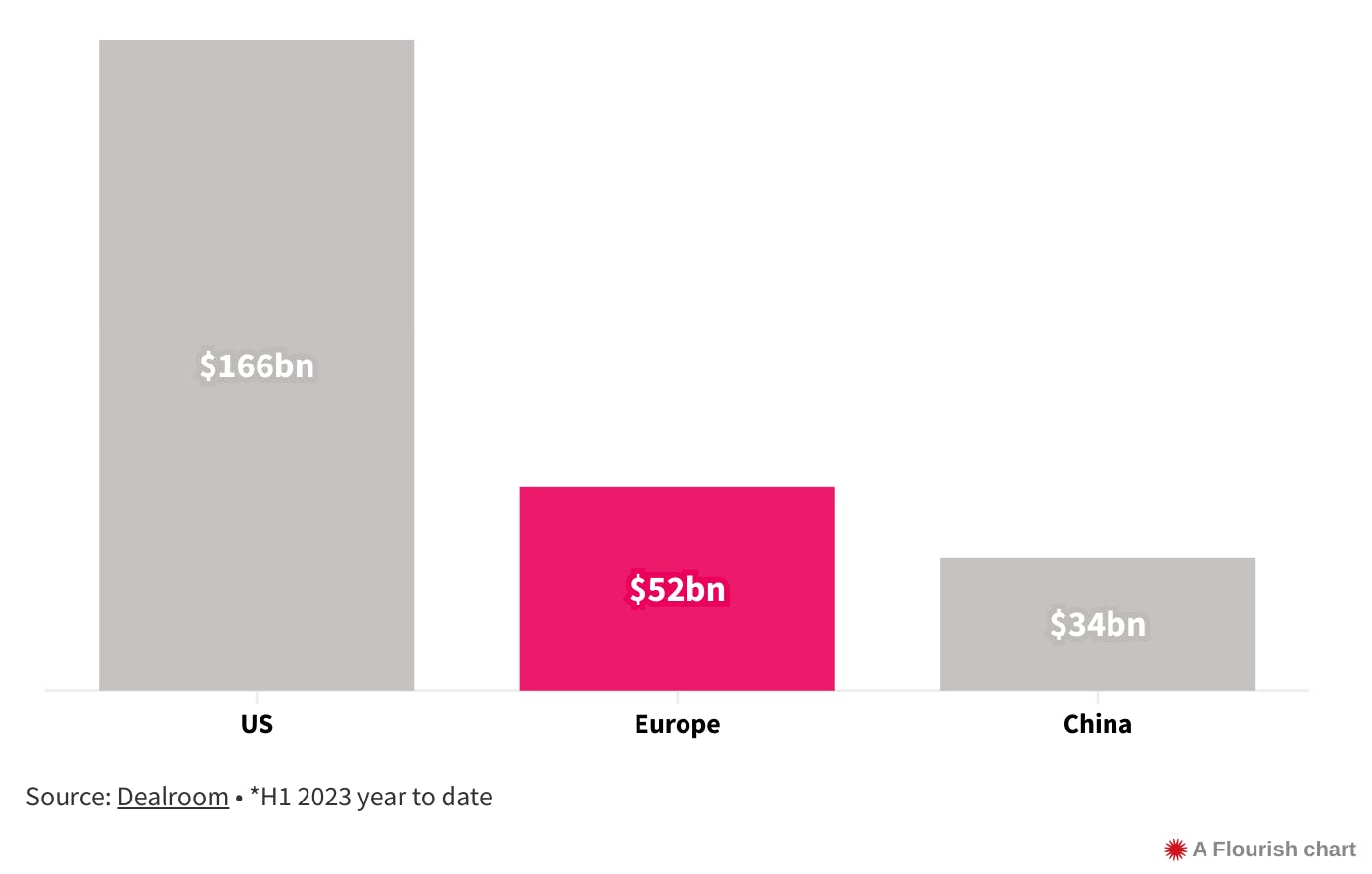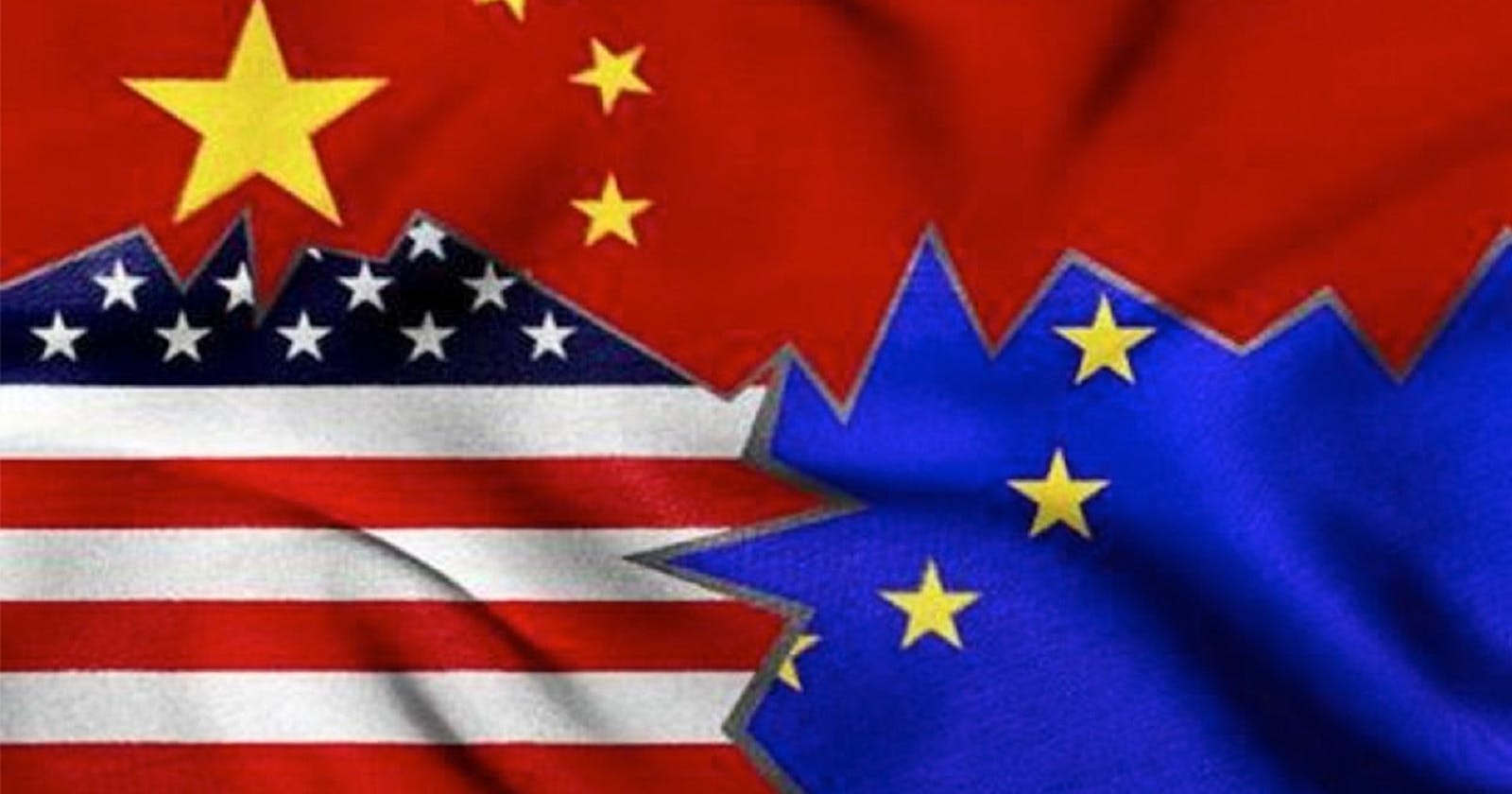Can European deeptech challenge the US and China?
How can Europe overcome its fragmentation, harness deeptech to navigate a de-globalising world, and redefine its role on the global chessboard
People often compare Europe’s tech landscape to those in the US and China to make a point about how far the continent is falling behind its strategic rivals. But behind all the debate, you may have missed hearing that Europe surpasses China in deeptech investment.
Europe boasts impressive resources and human capital. Its academic talent is second to none, with the largest global share of highly cited research publications (43%) and a higher percentage of STEM graduates (22-35%) than the US (18%).

That said, Europe hasn’t been able to produce deeptech powerhouse companies like Palantir and SpaceX. That’s because Europe’s deeptech market remains fragmented, a critical problem for security, defence and supply chain sovereignty.
Addressing this fragmentation — and recognising the importance of cooperation and unity — is key to cementing Europe’s place as a third global deeptech powerhouse.
Understanding Europe’s fragmentation
Europe’s deeptech market suffers from fragmentation thanks to a range of factors, including regulation, historical differences and individual national agendas.
While European governments have started to take action, such pledges from the British, French and German governments to invest in quantum technology, these efforts often result in short-sighted competition between nations rather than a unified large-scale effort.
The US and China have the advantage of the sheer economic size, as well as being a single market.
Venture capital has already given the US global leadership in tech. Last year, a member of the US president’s Intelligence Advisory Board made it clear just how much it’d be focusing on deeptech as a matter of national security: “We have to be very serious about how these technologies get built… Not simply thinking that technology’s neutral — because the technology’s not neutral.”
The US’s ambitions build upon initiatives such as the CHIPS Act, which aims to accelerate the creation of a domestic semiconductor industry, and have been mirrored by China’s prioritisation of deeptech in R&D efforts.
Collaboration is possible — simply build on past successes
But saying that Europe cannot build a united deeptech ecosystem and strategy because of national divisions is no excuse. The region has demonstrated the ability to collaborate successfully in the past. Just take the example of prestigious research institutions like the European Organisation for Nuclear Research, CERN, which has drawn on pan-European talent and been able to attract the best and brightest from abroad.
“The fact that NATO had to create this fund also highlights the lack of a truly united and independent, VC-rooted effort to support deeptech in Europe”
Recent initiatives also indicate a willingness to collaborate in deeptech, such as the NATO fund. Launched to support deeptech research and development, particularly in defence, the fund has commitments from 22 countries. The fact that NATO had to create this fund also highlights the lack of a truly united and independent VC-rooted effort to support European deeptech. The fund is still hiring its senior management team; time will be the judge of its true impact.
Another positive development is the emergence of pan-European VC investment firms that don’t focus on just one nation or group of nations, though these are still few and far between.
Solutions to overcoming fragmentation
The question we should ask ourselves, though, is whether we want to accept that many deeptech startups will ultimately outgrow Europe and eye the US or NATO as their main scaleup partner on the world stage — or if our national governments can find the willingness to ignore historical tensions and develop a true pan-European deeptech strategy that supports these critical technology companies beyond their native borders.
From a financial perspective, especially for deeptech seed investors like my VC firm, it may not matter too much. The trend is clearly pointing to Europe being able to create successful deeptech companies. But as Europeans, the question of technology sovereignty should go beyond financial returns and include how we see our role on the de-globalising world’s stage.
“Europe needs to streamline its tangled web of regulations and priorities”
With that said, there are some solutions that Europe can start working on now.
First, encouraging pan-European investment firms can facilitate cooperation among nations by pooling resources and fostering cross-border collaboration. This is going to be challenging if most European funds are backed by the EIF, often with the addition of national government banks (if in the EU) or the British Business Bank (if British), and these LPs force their investees to deploy primarily in a given country or region.
Second, Europe must embrace a shared vision based on a risk-taking mindset, because the US and China have already recognised the strategic value of deeptech and doubled down on their investments. This goes back to finding answers to whether investors and governments should resign themselves to European companies going to the US or trying to keep their headquarters here.
Third, Europe needs to streamline its tangled web of regulations and priorities. To give just a few examples of how broken the system is, the European Space Agency did not actually replace national agencies and each country is building an independent quantum programme. These overlaps create waste and even internal competition.
When it comes to regulations, there is also no unified strategy — Italy even decided to unilaterally ban access to ChatGPT without notice! Brexit didn’t help either, since the UK is the largest VC ecosystem in Europe but alone it still pales in contrast with the US or China.
Europe’s path to deeptech dominance
Europe has the potential to be a formidable player in the global deeptech race, but overcoming fragmentation is crucial for realising this potential. By fostering collaboration and adopting innovative solutions like pan-European investment funds and supra-national defence initiatives, Europe can unite its resources to have a true shot at challenging the dominance of the US and China in critical areas like deeptech.
Francesco Perticarari is general partner at Silicon Roundabout Ventures.
This article was first published on Sifted.eu on Apr 26th 2022

